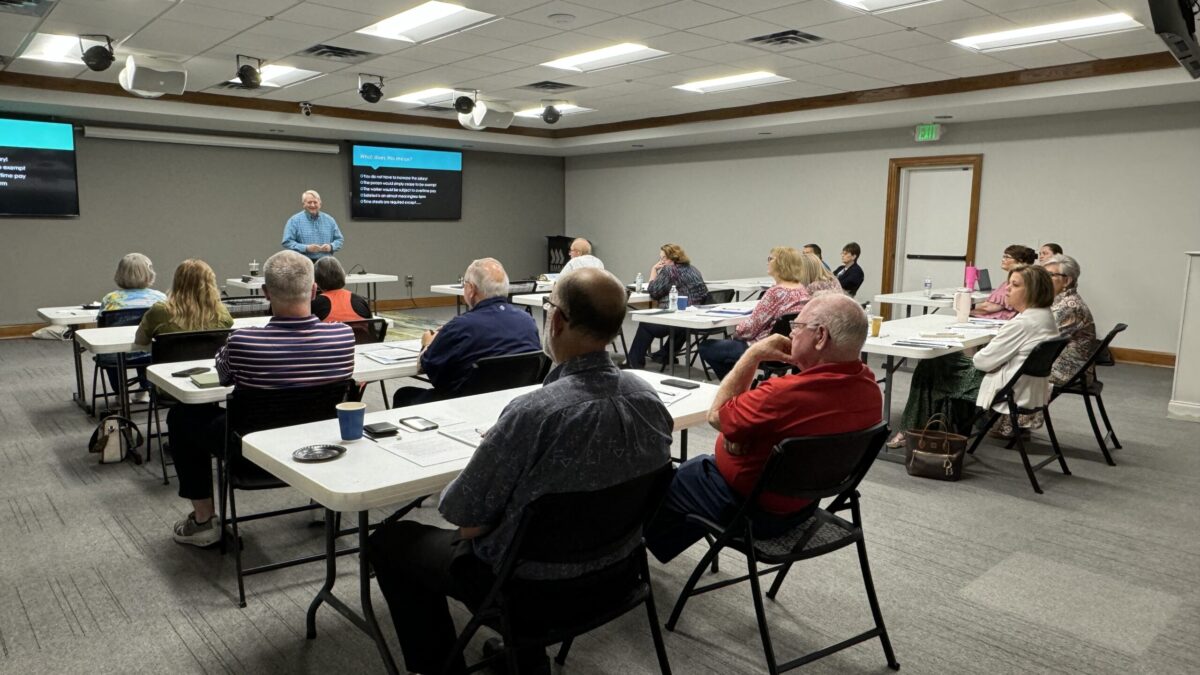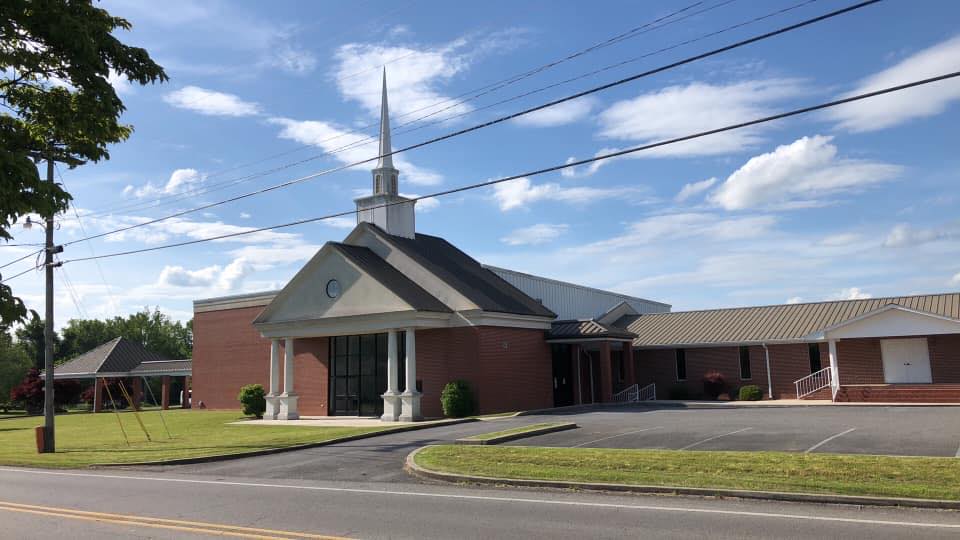Churches must give attention to at least three key areas of financial life in the months ahead, noted Lee Wright, church compensation specialist for the Alabama Baptist State Board of Missions.
Wright recently directed a training session at the conference center of the Birmingham Metro Baptist Association.
Employees
The first area of concern has to do with employees.
“Churches often use contract workers for tasks such as custodial cleaning and lawn care,” he said during the Aug. 1 training. “These are not considered employees if, for example, they use their own tools or have no set hours. The church will issue a Form 1099 at the end of the year if they are paid more than $600.”
A special concern is liability insurance and workers’ compensation coverage. If contract workers don’t have this, many insurance companies will ask the church to include this in their coverage.
Then churches determine if other workers who are employees are exempt or nonexempt.
“Ministers are always exempt,” he said. “This means that they’re not eligible for overtime pay. One tax professional said a good application test is to ask if they ‘impart the faith.’ If so, their category is different.
“But nonexempt employees must be paid overtime if they work beyond 40 working hours,” he said.
New guidelines from the Fair Labor Standards Act declare that exempt salaried employees are eligible for overtime pay if their salary exceeds $844 weekly as of July 1, and this amount increases to $1,128 weekly on Jan. 1.
“Many Alabama Baptist churches don’t have employees who meet this new salary guideline, but we do need to be careful about overtime work,” he said.
A better practice, Wright said, is not to allow nonexempt employees such as ministry assistants to take work home as a substitute for workplace labor and to take time off when their work has met the required weekly standard. If not, overtime pay is required, and a church is negligent if they don’t pay. Time sheets are a must.
Fundraising
The second area of concern for churches is fundraising.
“The IRS stipulates that any fundraising be for a church’s ‘tax-exempt purpose,’ so we must be careful about special gifts and projects in church,” he said. “For example, a member might want to use a room to sell cookware or makeup, and this is disallowed by our tax-exempt designation.”
A frequently misunderstood issue, Wright noted, is camps versus missions trips.
“Giving money to pay for one’s child camp experience is a good thing but not tax-deductible,” he said. “But giving money to pay for someone’s missions trip would be tax-deductible. The difference is that camps are seen as a personal benefit while a missions trip is a benevolent work of the church.”
Wright offered a few suggestions to navigate this issue.
Fundraising, he noted, should be kept to a minimum.
“If fundraising is done two or three times each year, the Alabama Revenue Department calls it ‘casual’ and wouldn’t require sales tax to be collected,” he said. “Second, if money is made through working or selling, the money should generally be divided equally among all the participants. And churches should take care not to make youth or others ‘employees,’ earning money through selling or service projects.”
Designated gifts
A third area of concern is designated gifts, and Wright said he frequently fields questions about this.
“In order for designated gifts to be tax-deductible according to the IRS, the gifts must be church-approved and under church control,” he said. “And gifts must not benefit a specific person.”
Wright said it’s best for designated gifts to be broad in scope, such as “music ministry” rather than “choir robe fund,” or “building fund” rather than “new flooring.” This gives the church more control should the particular project be discontinued.
Wright said he also fields questions about church members giving to budget line items, which he discourages.
“Giving to a favorite ministry in the budget really distorts the budget,” he said, “since a budget is a plan the church has made to take care of recurring ministry needs. Donors should know that this kind of giving doesn’t carry over into a new budget year. Budget teams need to discuss this and determine if special gifts like this add to the budgeted amount or are part of the budgeted amount.
Wright is available to help with other church financial issues. He can be reached at 800-264-1225, ext. 2241 or at 334-613-2241.
Several helpful documents are posted at https://alsbom.org/ministries/church-compensation/.






Share with others: